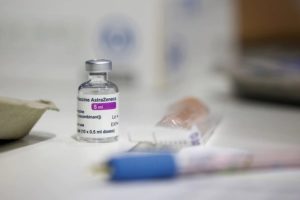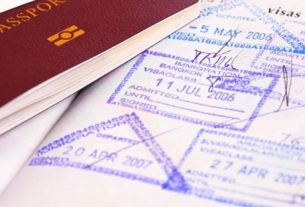
Thailand’s ‘mix and match’ vaccine policy creates hurdles for people travelling to UK and EU
Receiving a COVID-19 vaccine in Thailand doesn’t guarantee proof of immunity for anyone wishing to visit the EU or UK.
Thailand’s mix and match COVID-19 vaccination policy means that people travelling to the UK or the EU need to self-quarantine on arrival, despite being ‘vaccinated’.
Due to shortages with Thailand’s locally produced AstraZeneca vaccine, the government has adopted a ‘mix and match’ approach using Sinovac and AstraZeneca vaccines.
However, ‘mix and match’ vaccines are not formally recognised by the British government or the EU.
In the UK, only vaccines by Moderna, Oxford/AstraZeneca, Pfizer/BioNTech or Janssen have been approved.
Since Aug 13, the UK has required all visitors who have received doses of two different COVID-19 vaccines to self quarantine for 10 days when arriving from Thailand or any other ‘amber list’ country.
Quarantine can be completed at a location of choice, but tests are required on the second and eighth day of self isolation.
People who fail to self quarantine or submit results of their COVID-19 tests face fines of up to £10,000, that’s even if they received a mix and match vaccine in Thailand.
UK indicates it will accept Thai made AstraZeneca vaccine
There had also been some uncertainty regarding whether the British government would officially recognise the AstraZeneca vaccine made in Thailand.
However, the UK’s vaccines minister, Nadhim Zahawi, has recently signalled that the UK will accept all versions of the AstraZeneca vaccine.
Two weeks ago, Mr Zahawi told a Commons debate: “By the end of this month, UK nationals who have been vaccinated overseas will be able to talk to their GP, go through what vaccine they have had, and have it registered with the NHS that they have been vaccinated.”
Mr Zahawi said that GPs would be required to vet people as to whether the vaccine they had received overseas was approved for use in the UK.
For people who are not registered with a GP in the UK, as is the case with many British expats in Thailand, Mr Zahawi also hinted that all travellers from abroad who had received vaccines authorised for use in the UK would also have their vaccinations recognised as proof of immunity and would not be required to self quarantine.
“We want to offer the same reciprocity as the 33 countries that recognise our [NHS] app, and that will also happen very soon,” Mr Zahawi.
EU still to approve Thai made AstraZeneca vaccine
Last week, the Thai government said the locally produced AstraZeneca vaccine is now approved by the governments of France and Germany.
But that is not the case for all EU member states or Schengen countries.
Because the vaccine has not been approved by the European Medicines Agency (EMA), each country has set its own criteria with regards to which vaccines can be used to prove immunity.
Vaccines offered by Pfizer, Moderna, Vaxzervria – AstraZeneca, Janssen – Johnson & Johnson are approved by the EMA and are accepted by all EU and Schengen Area countries
However, Thailand’s Ministry of Foreign Affairs on Aug 12 said that AstraZeneca is still in the process of applying for certification with the EMA for the vaccines manufactured in Thailand.
It is a similar situation with the Covishield (AstraZeneca – Serum Institute of India).
At the time of writing, 18 out of 27 EU countries recognised the Covishield vaccine, including France, Germany, Ireland, Spain, Sweden and Netherlands.
Sinvoac and Sinopharm
For people in Thailand vaccinated with either the Sinovac and Sinopharm who wish to travel to the UK or EU, the situation is more complicated.
In the EU (or Schengen region), only eight countries have approved use of Sinovac: Austria, Finland, Greece, Iceland, Netherlands, Spain, Sweden and Switzerland.
And it’s a similar situation for the Sinopharm vaccine which has been approved in Austria, Cyprus, Greece, Hungary, Iceland, Malta, Spain and Sweden.
The UK is yet to formally approve either the Sinovac or Sinopharm vaccine.
Source: https://aseannow.com


